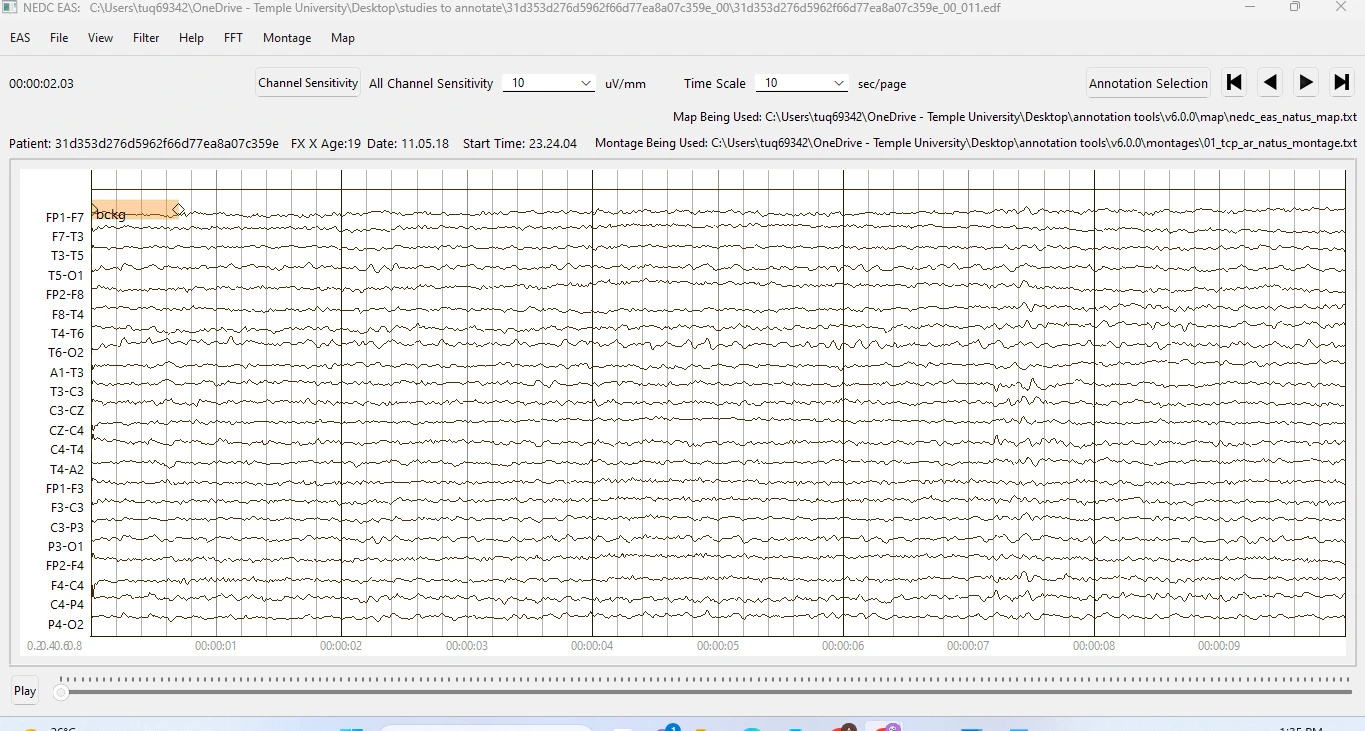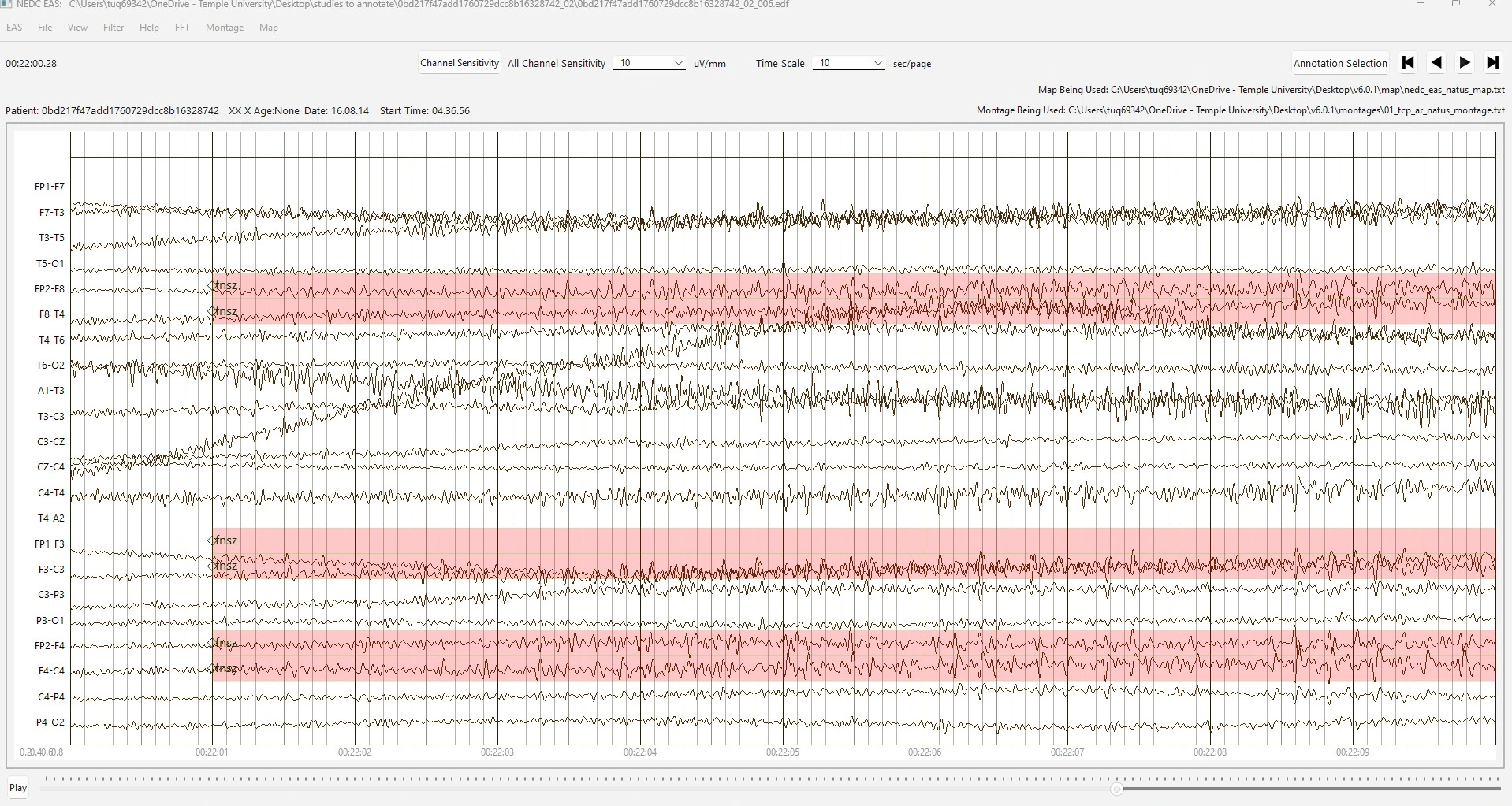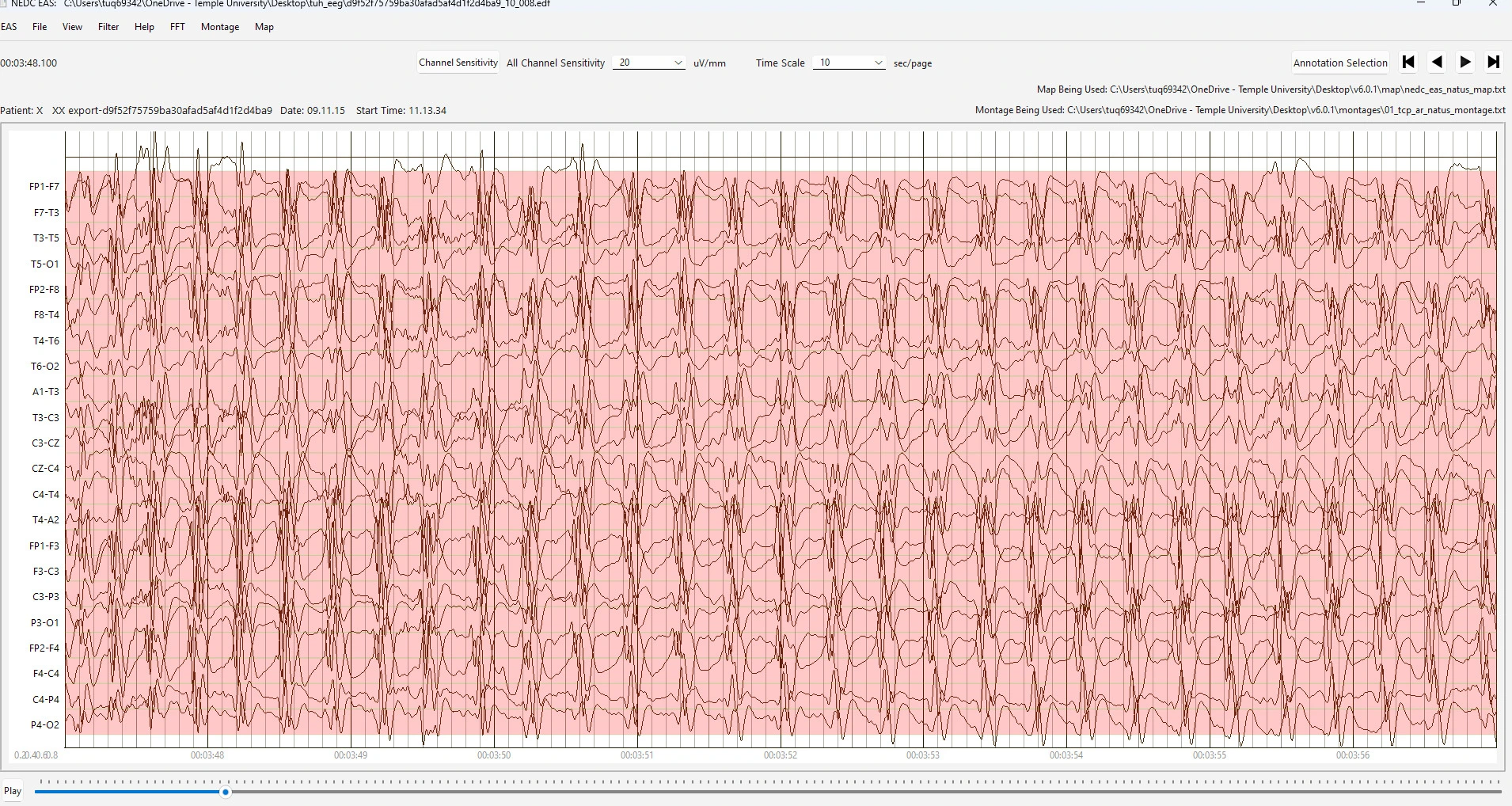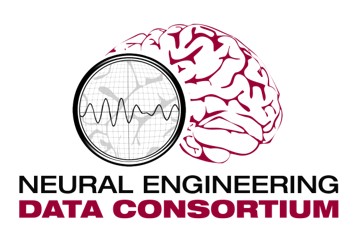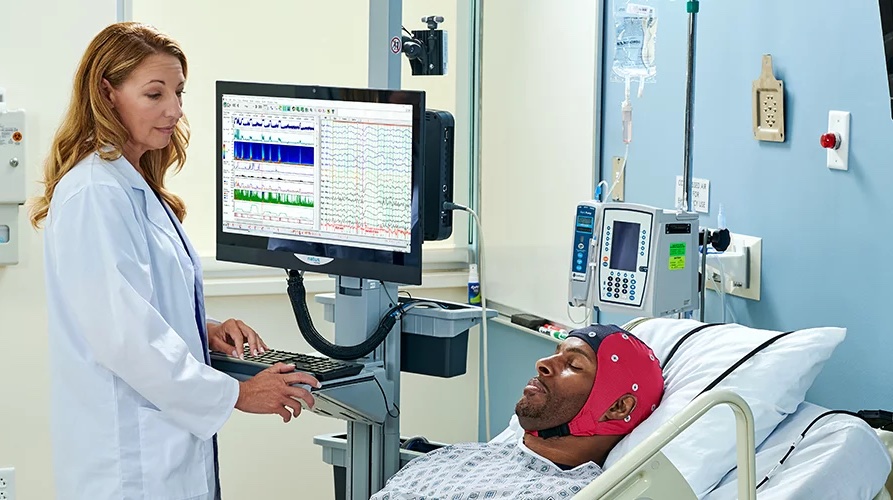Impact
This project will have significant impact on both clinical and technological aspects of epilepsy research and EEG analysis. By providing precise annotations for the Natus Ambulatory EEG Corpus, it directly contributes to enhancing seizure prediction models and improving the understanding of EEG signals in real-world conditions. The inclusion of artifacts like patient movement presents an opportunity to develop innovative artifact detection and adaptive signal processing techniques, which are crucial for more reliable, real-time monitoring systems. Additionally, the rapid annotation methodology used in this project sets a foundation for future large-scale annotation efforts, streamlining the data preparation process and increasing the efficiency of subsequent research. The work ultimately drives advancements in seizure monitoring, prediction tools, and broader neuroengineering applications, with a direct impact on patient care and clinical decision-making.
Annotated Data
We have currently completed the annotation of approximately 3,000 EEG files, which have been submitted to Natus Medical Inc. The following images provide visual representations of various activities identified within the analyzed files, highlighting key patterns observed during the annotation process.
